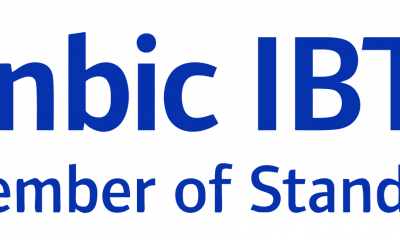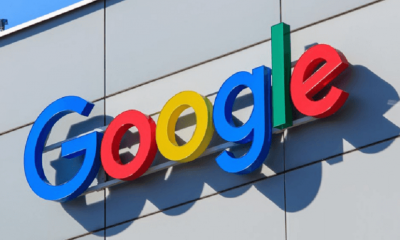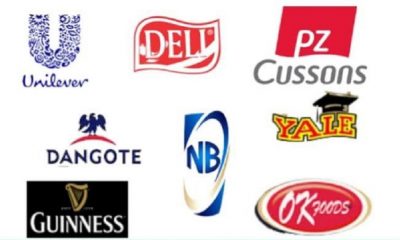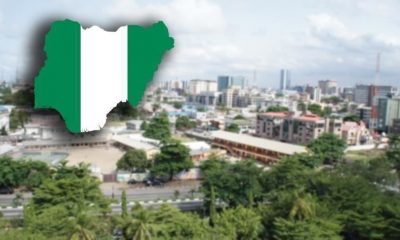Economy
Nigerian Businesses to Regain Normalcy August 2021—Report
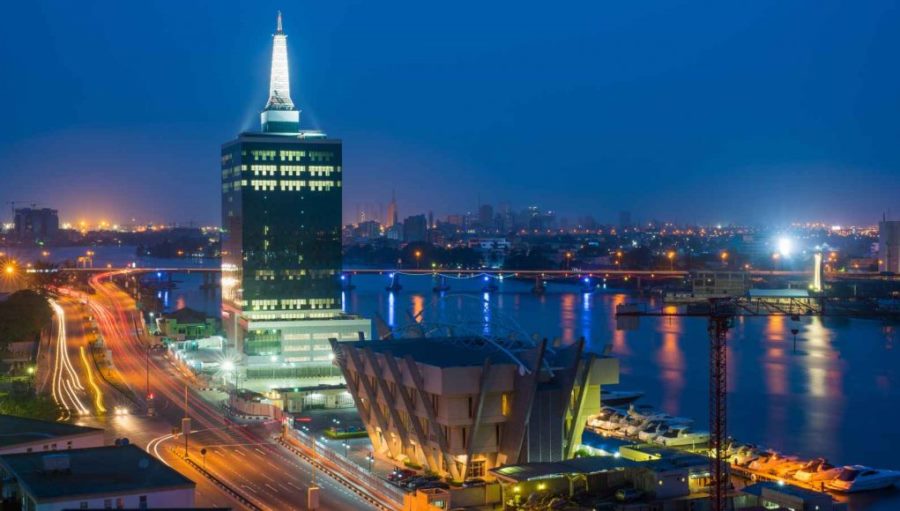
By Modupe Gbadeyanka
By August 2021, the Nigerian business environment will regain normalcy from the devastating effect of the global COVID-19 pandemic, the Philips Consulting CEO Report has projected.
In the CEO Report of the company, 57 per cent of CEOs contacted said they expect that the earliest possible time for the business environment in Nigeria to normalize and operate optimally will be August 2021.
In the 100 Nigerian business leaders reached by Phillips Consulting Limited, it was observed that CEOs are increasingly taking responsibility for their companies and are not necessarily looking up to the government for solutions to the problems occasioned by the pandemic.
For a greater awareness on political leadership in the country, the survey showed that as against the 79 per cent CEOs who voted in the 2019 general elections, only 67 per cent CEOs have reported that the pandemic would make them more interested in the outcome of the 2023 election.
Speaking on the CEO Report, Philips Consulting’s CEO, Mr Rob Taiwo, said, “Results from our survey showed that the Nigerian government and business leaders should pay close attention to the post-COVID19 policies and strategies of the United Kingdom, China, and the United States of America as these will have the most profound impact on the Nigerian business environment.”
He said, “At pcl, we are committed to working with our clients and partners to build and develop people’s capabilities, technology systems and processes, effective and robust strategies, and business continuity plans. Let us work with you to future proof your business in the next normal.”
On managing money matters, Mr Taiwo said, “Our 2020 Mask in the Air report states that “the most significant impact of COVID-19 is the restriction in movement, having its direct and detrimental impact on the local and global aviation industry.”
An already bleeding hospitality industry will experience slow recovery, as 68 per cent of CEOs identified travel and tourism as their number one cost-cutting area. 55 per cent of companies are considering reducing staff allowances and bonuses, while 40 per cent and 30per cent will cut rental costs and staff training respectively.
On the matter of fiscal adjustments, only 22 per cent of CEOs have laid off staff, as most of them found proactive ways to keep their workforce engaged and economically productive.
However, due to reduced cash flow, 46 per cent of companies had to roll out pay cuts for their workers. The decision to employ pay cuts rather than termination as a cost reduction strategy is advisable to ensure that culture is not diluted, talent is retained, employees are not demotivated, and the company projects an excellent corporate image, the report highlighted.
The report also highlighted challenges facing the real estate industry in Nigeria and posited that the industry may be the worst hit among others. In the report, 84 per cent of CEOs agree that the real estate industry, especially companies in the business of office rentals, will be badly hit by this disruption.
About 83 per cent and 55 per cent of CEOs adopted a Work From Home Strategy and Standby Model Strategy respectively and are beginning to question the need for large office spaces.
Only 46 per cent of CEOs are considering retaining their current offices, while others will seek smaller and cheaper offices, shared offices, or adopt an entirely virtual working model.
In commercial cities like Lagos where massive high-rise office complexes are commonplace, real estate players must be ready for a shift in demand. They might be forced to repurpose their buildings or provide new services to suit the new mode of work.
Speaking on which industries benefit from the crisis, Mr Taiwo, a transformational leader said, “Globally, the IT sector experienced a surge in the wake of the pandemic, as a result of the shift to remote working. This resulted in a heavy reliance (or dependence) on IT products for both personal and business purposes.
Nigeria is no exception, he stated, “From our survey, 86 per cent of CEOs reported that the pandemic led to them improving the IT infrastructure of their organizations. Our respondents predict that Nigeria’s healthcare, agribusiness, and manufacturing industries stand to benefit from the next normal.”
“They expect the professional services industry to experience comparatively minimal disruption. This is primarily due to their vast array of services, relatively low operational expense, lean and agile business model, and legacy clients.”
On the levels of preparedness for the pandemic, the report said, only 6 per cent of CEOs reported that their organizations were prepared for the pandemic. Hence, it comes as no surprise that 55 per cent of Nigerian businesses are currently operating below 50 per cent of their operating capacity.
The 6 per cent mentioned above stated a strong leadership team as the most critical factor of their preparedness. Other important factors include having a robust business continuity plan, government support, and a well-articulated business strategy.
On forging ahead into the next normal, the CEOs Report revealed that 57 per cent of CEOs expect that the earliest possible time for the business environment in Nigeria to normalize will be August 2021.
CEOs are increasingly taking responsibility for their companies, and are not necessarily looking up to the government for solutions to the problems occasioned by the pandemic. As against the 79 per cent of CEOs that voted in the 2019 general elections, only 67 per cent of CEOs reported that the pandemic would make them more interested in the outcome of the 2023 election.
Mr Taiwo said, “Results from our survey showed that the Nigerian government and business leaders should pay close attention to the post-COVID19 policies and strategies of the United Kingdom, China, and the United States of America as these will have the most profound impact on the Nigerian business environment.
Economy
Champion Breweries Concludes Bullet Brand Portfolio Acquisition

By Aduragbemi Omiyale
The acquisition of the Bullet brand portfolio from Sun Mark has been completed by Champion Breweries Plc, a statement from the company confirms.
This marks a transformative milestone in the organisation’s strategic expansion into a diversified, pan-African beverage platform.
With this development, Champion Breweries now owns the Bullet brand assets, trademarks, formulations, and commercial rights globally through an asset carve-out structure.
The assets are held in a newly incorporated entity in the Netherlands, in which Champion Breweries holds a majority interest, while Vinar N.V., the majority shareholder of Sun Mark, retains a minority stake.
Bullet products are currently distributed in 14 African markets, positioning Champion Breweries to scale beyond Nigeria in the high-growth ready-to-drink (RTD) alcoholic and energy drink segments.
This expansion significantly broadens the brewer’s addressable market and strengthens its revenue base with an established, profitable portfolio that already enjoys strong brand recognition and consumer loyalty across multiple markets.
“The successful completion of our public equity raises, together with the formal close of the Bullet acquisition, marks a defining moment for Champion Breweries.
“The support we received from both existing shareholders and new investors reflects strong confidence in our long-term strategy to build a diversified, high-growth beverage platform with pan-African scale.
“Our focus now is on disciplined execution, integration, and delivering sustained value across markets,” the chairman of Champion Breweries, Mr Imo-Abasi Jacob, stated.
Through this transaction, Champion Breweries is expected to achieve enhanced foreign exchange earnings, expanded distribution leverage across African markets, integrated supply chain efficiencies, portfolio diversification into high‑growth consumer beverage categories, and strengthened presence in the RTD and energy drink segments.
The acquisition accelerates Champion Breweries’ transition from a regional brewing business to a multi-category consumer platform with continental reach.
Bullet Black is Nigeria’s leading ready-to-drink alcoholic beverage, while Bullet Blue has built a strong presence in the energy drink category across several African markets.
Economy
M-KOPA Nigeria Plans Expansion to Edo, Others After N231bn Credit Milestone

By Adedapo Adesanya
Emerging market fintech firm, M-KOPA, has announced plans to deepen its reach in Nigeria to the South South and South East regions, starting with Edo this year, after providing N231 billion in credit to over 1 million customers in the country.
The firm released its first Nigeria-focused Impact Report, which showed that Nigeria is M-KOPA’s fastest-growing market and fastest to reach the milestone.
Since its foray into the Nigerian market in 2019, M-KOPA has been working to dismantle barriers to financial inclusion by providing flexible smartphone financing and digital financial tools that align with how people in the informal economy earn and manage their money.
It operates in six states in the country, including Lagos, Ogun, and Oyo, among others.
The report highlights the company’s contribution to income generation, digital inclusion and economic opportunity for Every Day Earners across the country.
The report showed that M-KOPA has enabled 290,000 first-time smartphone users, while 56 per cent of agents accessed their first income opportunity through the platform.
It showed high income and livelihood gains among its users, with about 77 per cent of customers leveraging smartphones or digital loans obtained through the platform to generate income, indicating that access to financed devices is directly supporting micro-entrepreneurial activity and informal sector productivity.
Furthermore, 75 per cent of users report higher earnings since gaining access to M-KOPA’s services, suggesting measurable improvements in personal revenue streams. On the distribution side, 99 per cent of agents disclose increased earnings, reflecting positive spillover effects across the company’s value chain.
In addition, 81 per cent of long-term customers state that their household expenses have improved, pointing to enhanced financial stability and better consumption smoothing over time.
Speaking on the report, Mr Babajide Duroshola, General Manager, M-KOPA Nigeria, said, “Nigeria represents extraordinary potential, and we’re proud that it has become M-KOPA’s fastest-growing market. Our Impact Report shows that when Every Day Earners gain access to the right digital and financial tools, they use them to create stability and long-term progress for their families. This is about access that unlocks opportunity and sustained prosperity.”
On its expansion plans Nigeria-wide, the M-KOPA helmsman said, “Many of the states we are considering are already similar to the ones we are currently in proximity… So, there is proximity and similarity between these states, and that’s what we are going to do, starting with Edo.”
He noted that as M-KOPA Nigeria continues to expand, the focus remains on ensuring more everyday earners gain access to the digital and financial tools they need to build resilient, prosperous futures in Nigeria’s rapidly digitising economy.
Economy
Tinubu Okays Extension of Ban on Raw Shea Nut Export by One Year

By Aduragbemi Omiyale
The ban on the export of raw shea nuts from Nigeria has been extended by one year by President Bola Tinubu.
A statement from the Special Adviser to the President on Information and Strategy, Mr Bayo Onanuga, on Wednesday disclosed that the ban is now till February 25, 2027.
It was emphasised that this decision underscores the administration’s commitment to advancing industrial development, strengthening domestic value addition, and supporting the objectives of the Renewed Hope Agenda.
The ban aims to deepen processing capacity within Nigeria, enhance livelihoods in shea-producing communities, and promote the growth of Nigerian exports anchored on value-added products, the statement noted.
To further these objectives, President Tinubu has authorised the two Ministers of the Federal Ministry of Industry, Trade and Investment, and the Presidential Food Security Coordination Unit (PFSCU), to coordinate the implementation of a unified, evidence-based national framework that aligns industrialisation, trade, and investment priorities across the shea nut value chain.
He also approved the adoption of an export framework established by the Nigerian Commodity Exchange (NCX) and the withdrawal of all waivers allowing the direct export of raw shea nuts.
The President directed that any excess supply of raw shea nuts should be exported exclusively through the NCX framework, in accordance with the approved guidelines.
Additionally, he directed the Federal Ministry of Finance to provide access to a dedicated NESS Support Window to enable the Federal Ministry of Industry, Trade and Investment to pilot a Livelihood Finance Mechanism to strengthen production and processing capacity.
Shea nuts, the oil-rich fruits from the shea tree common in the Savanna belt of Nigeria, are the raw material for shea butter, renowned for its moisturising, anti-inflammatory, and antioxidant properties. The extracted butter is a principal ingredient in cosmetics for skin and hair, as well as in edible cooking oil. The Federal Government encourages processing shea nuts into butter locally, as butter fetches between 10 and 20 times the price of the raw nuts.
The federal government said it remains committed to policies that promote inclusive growth, local manufacturing and position Nigeria as a competitive participant in global agricultural value chains.
-

 Feature/OPED6 years ago
Feature/OPED6 years agoDavos was Different this year
-
Travel/Tourism10 years ago
Lagos Seals Western Lodge Hotel In Ikorodu
-

 Showbiz3 years ago
Showbiz3 years agoEstranged Lover Releases Videos of Empress Njamah Bathing
-

 Banking8 years ago
Banking8 years agoSort Codes of GTBank Branches in Nigeria
-

 Economy3 years ago
Economy3 years agoSubsidy Removal: CNG at N130 Per Litre Cheaper Than Petrol—IPMAN
-

 Banking3 years ago
Banking3 years agoSort Codes of UBA Branches in Nigeria
-

 Banking3 years ago
Banking3 years agoFirst Bank Announces Planned Downtime
-

 Sports3 years ago
Sports3 years agoHighest Paid Nigerian Footballer – How Much Do Nigerian Footballers Earn


